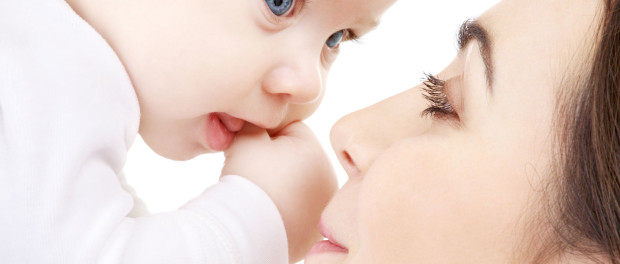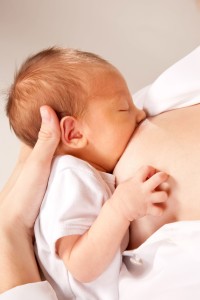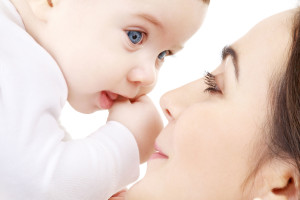NeuroScience of Attachment Parenting

Gentle, sensitive, and responsive parenting is scientifically proven to promote healthy brain development of young children. The newborn brain is still immature and continues to grow and develop after birth. The way parents interact with newborns will determine how the brain develops. Attachment Parenting requires brain development that goes beyond just nurturing.
Parents who are sensitive and responsive to baby’s needs will help infants develop social capacities. The brain centers that support facial recognition and focus on the behaviors and emotions of others will develop in response to parental sensitivity. The brain centers that support social interactions will continue to specialize and develop under the care of responsive parents.
The scientific process that describes how human infants develop brain capacities for socialization and caring for others is called … Attachment Theory. This theory about how humans develop the brain cells and pathways to support complex social behavior, including compassion and caring, is an example of NeuroScience at its best.
Studying the psychological, emotional, social, and educational aspects of this important attachment brain development can reveal vital information about best “Attachment Parenting” strategies.
 Gentle birthing, breastfeeding, cuddling, skin-to-skin contact, and co-sleeping are wonderful examples of the nurturing side of Attachment Parenting. Parents must be aware, however, that these nurturing behaviors represent just a fraction of critical factors that make up the entire NeuroScience of Attachment Parenting formula.
Gentle birthing, breastfeeding, cuddling, skin-to-skin contact, and co-sleeping are wonderful examples of the nurturing side of Attachment Parenting. Parents must be aware, however, that these nurturing behaviors represent just a fraction of critical factors that make up the entire NeuroScience of Attachment Parenting formula.
Children look to parents for indicators and direction for a myriad of complex social, safety, and self-preservation related behaviors. The Attachment Parent must learn to incorporate effective social and familial rules in a family culture that is rich with firm and developmentally appropriate boundaries.
Children who are raised in the Nurture-Only type of Attachment Parenting environment quickly develop social and emotional challenges. Parents who are heavily focused on the Nurturing side of Attachment Parenting without attention to the REST of the factors that make up healthy attachment development will begin to see the cracks in the process.
 When an Attachment Parent begins to see a child be demanding, lack manners, demonstrate insensitivity, lack compassion for others, have temper tantrums, become angry or sullen, and lash out at parents and family members (including pets) … these are signs that the REST of the Attachment Parenting process must be put into place. The child’s brain has not be developed in the OTHER critical components of social behavior that supports emotional regulation, compassion, kindness, manners, and maintaining appropriate behavior.
When an Attachment Parent begins to see a child be demanding, lack manners, demonstrate insensitivity, lack compassion for others, have temper tantrums, become angry or sullen, and lash out at parents and family members (including pets) … these are signs that the REST of the Attachment Parenting process must be put into place. The child’s brain has not be developed in the OTHER critical components of social behavior that supports emotional regulation, compassion, kindness, manners, and maintaining appropriate behavior.
Parents must balance out their children’s brain development through a full Attachment Parenting program. Instead of turning away from the developmentally appropriate nurturing and sensitivity of Attachment Parenting, parents must simply learn to fill out the rest of the Attachment Parenting process. Creating a family culture that is based on positive human qualities is the first step. Creating healthy rules and maintaining them with developmentally appropriate boundaries is the way to solve the problem.
Follow along as we share critical information to help parents round out the Attachment Parenting process so that is produces happy, emotionally healthy, and developmentally effective human beings who are joyful children who grow up to become happy, effective, and valuable members of society.
Darleen Claire is a parenting expert with specialization in brain-based child rearing and mental health, including healthy attachment parenting. She is available to work with parents with serious parenting questions and challenges through small group and some limited individual sessions. Contact Darleen Claire at DarleenClaire@gmail.com if you would like to arrange some small group or individual support.







